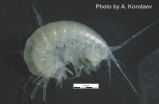Brain learning simulated via electronic replica memory
New study: New way of controlling electronic systems endowed with a memory can provide insights into the way associative memories are formed by mimicking synapses
2015-05-18
(Press-News.org) Scientists are attempting to mimic the memory and learning functions of neurons found in the human brain. To do so, they investigated the electronic equivalent of the synapse, the bridge, making it possible for neurons to communicate with each other. Specifically, they rely on an electronic circuit simulating neural networks using memory resistors. Such devices, dubbed memristor, are well-suited to the task because they display a resistance, which depends on their past states, thus producing a kind of electronic memory. Hui Zhao from Beijing University of Posts and Telecommunications, China, and colleagues, have developed a novel adaptive-control approach for such neural networks, presented in a study published in EPJ B. Potential applications are in pattern recognition as well as fields such as associative memories and associative learning.
The key to this study lies in the ability to gain better control of how memristors behave. This, in turn, helps duplicate the kind of anti-synchronisation phenomena observed in real life. The team focused on applying a novel control approach enabling synchronization of two state vectors that have the same state trajectory, but opposite signs - which is important for applications. For example, anti-synchronization in lasers provides a new way to generate the special form of pulse. While anti-synchronization in communication systems increases the security and confidentiality of communication by changing the form of synchronisation.
The trouble is that the traditional robust control and analytical techniques cannot be directly applied because the parameters of the memristor neural network are dependent on past states. In addition, external disturbances do not allow easy synchronisation of the neural network. In this work, the team thus identifies some effective conditions that give the system stability - which is also reached more quickly and durably than with previously available methods.
INFORMATION:
Reference:
H. Zhao, L. Li, H. Peng, J. Kurths, J. Xiao and Y. Yang (2015), Anti-synchronization for stochastic memristor-based neural networks with non-modeled dynamics via adaptive control approach, Eur. Phys. J. B 88: 109, DOI: 10.1140/epjb/e2015-50798-9
ELSE PRESS RELEASES FROM THIS DATE:
2015-05-18
An international team of scientists have discovered a new species of typhlogammarid amphipod in the limestone karstic caves of Chjalta mountain range -- the southern foothills of the Greater Caucasus Range. The study was published in the open access journal Subterranean Biology.
The new amphipod, which belongs to the genus Zenkevitchia, is the second species known from this group. This new addition to the genus is named Zenkevitchia yakovi after the famous Russian biospeleologist Prof Yakov Birstein.
Typhlogammarid amphipods are a group blind and unpigmented endemic ...
2015-05-18
Radiotherapy used in cancer treatment is a promising treatment method, albeit rather indiscriminate. Indeed, it affects neighbouring healthy tissues and tumours alike. Researchers have thus been exploring the possibilities of using various radio-sensitizers; these nanoscale entities focus the destructive effects of radiotherapy more specifically on tumour cells. In a study published in EPJ D, physicists have now shown that the production of low-energy electrons by radio-sensitizers made of carbon nanostructures hinges on a key physical mechanism referred to as plasmons ...
2015-05-18
This news release is available in German.
Scientists from Paris and Helmholtz-Zentrum Berlin have been able to switch ferromagnetic domains on and off with low voltage in a structure made of two different ferroic materials. The switching works slightly above room temperature. Their results, which are published online in Scientific Reports, might inspire future applications in low-power spintronics, for instance for fast and efficient data storage.
Information can be written as a sequence of bit digits, i.e. "0" and "1". Materials which display ferromagnetism ...
2015-05-18
Bowel cancer is often driven by mutations in one of several different genes, and a patient can have a cancer with a different genetic make-up to another patient's cancer. Identifying the molecular alterations involved in each patient's cancer enables doctors to choose drugs that best target specific alterations.
However, it is also becoming clear that while some cancers may be driven by a single gene mutation, individual tumours are often composed of groups of cancer cells, with each group having different molecular alterations from the others. This is known as intra-tumour ...
2015-05-18
Streptococcus pneumoniae is a major human pathogen and is known to be associated with increased risk of fatal heart complications including heart failure and heart attacks.
As Streptococcus pneumoniae is a respiratory pathogen that does not infect the heart, however, this association with heart problems has puzzled clinicians and researchers, particularly as even prompt use of antibiotics does not provide any protection from cardiac complications.
A multidisciplinary research team, led by Professor Aras Kadioglu and Professor Cheng-Hock Toh at the University of Liverpool, ...
2015-05-18
WASHINGTON, D.C., May 18, 2015 -- Human beings have unique voices -- from the deep, resonating bass of James Earl Jones to the raspy melodies sung by Broadway star Carol Channing -- and we routinely recognize individuals based solely on the way they sound, for example over the telephone, on a music CD or in an animated film.
The same theory that explains individual differences in human speech has recently been applied to other members of the animal kingdom, including dogs and deer. Now researchers from Syracuse University in New York are working to understand whether ...
2015-05-18
Predatory seals are constraining the recovery of cod stocks in Scottish West coast waters, research led at the University of Strathclyde suggests.
Losses of cod, through fishing and natural causes, have remained high for many years and have caused long-term decline in the stock - in some years, fishing removed around 50% of the total weight of the stock. The study found that, although fishing has now halved, predation by seals has rapidly increased to compensate, eating up more than 40% of the total stock.
Seals have, historically, been anecdotally blamed for the reduction ...
2015-05-18
Stanford computer scientists have shown how crowdfunding websites can use data science to boost cash value of donations. Their research confirms, among other findings, the importance of a timely thank you.
It's common courtesy to say thanks when receiving a gift, and common sense to think that givers might be generous again if they felt good about their prior gift.
Now Stanford computer scientists have shown how crowdfunding websites like Kickstarter and DonorsChoose.org can use data science to apply these folk wisdoms systematically, and on a large scale, to greatly ...
2015-05-18
PISCATAWAY, NJ - Among people who use medical cannabis for chronic pain, those who also take prescription pain medications are not at increased risk for serious alcohol and other drug involvement, according to a study in the May issue of the Journal of Studies on Alcohol and Drugs.
Although medical cannabis is being used increasingly often as an alternative to opioids for chronic pain, in many patients it is being used in conjunction with opioids. This use has raised concerns that the combination could increase the risk of patients using substances such as alcohol and ...
2015-05-18
New York, NY, May 18 2015 -- Shiftwork is an occupational health risk of growing significance because it is becoming more common and because of its potential influence on health outcomes, possibly increasing health differences between workers of higher vs lower socioeconomic status. A new study from the University of Wisconsin School of Medicine and Public Health determined that employees who work shifts outside of a 9-to-5 schedule are more likely to be overweight and experience sleep problems, and possibly more likely to develop metabolic disorders, such as diabetes, ...
LAST 30 PRESS RELEASES:
[Press-News.org] Brain learning simulated via electronic replica memory
New study: New way of controlling electronic systems endowed with a memory can provide insights into the way associative memories are formed by mimicking synapses


